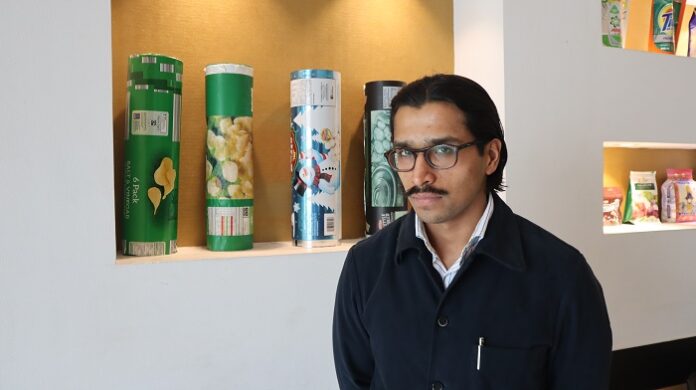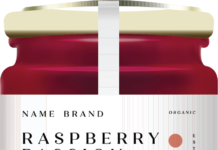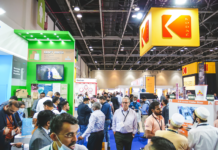We recently had an opportunity to interview Apoorvshree Chaturvedi, Director – Global Operations, UFlex Group. In our conversation, Chaturvedi, based in London, was forthright about the European film market UFlex serves from its plants in Poland and Hungary. (UFlex also has packaging film manufacturing plants in India, the UAE, Mexico, Poland, Egypt, CIS, the USA, Hungary, and Nigeria.)
Naresh Khanna – What is the overall economic situation in Europe, especially in terms of consumer sentiment, energy supply, and the tariff uncertainties from your point of view as a film supplier from your plants in Poland and Hungary?
Apoorvshree Chaturvedi – The Russia-Ukraine war, which began in 2022, significantly impacted the packaging sector as the rising electricity and gas costs led to reduced purchasing power and changes in household spending. I believe Europe has moved beyond that phase now. However, this does not mean that we are back to comfortable or surplus energy supplies. Although the situation has stabilized, we will continue to monitor the energy market.
PSA – Given that consumer demand has been disrupted by the war, energy crisis, and now tariff uncertainty, what is the situation for your film manufacturing plants and your capacity utilization?
Apoorvshree Chaturvedi – We are comfortable with our current capacity utilization levels in Europe. There is a small amount of headroom, which we are working to cover in response to an increase in the overall demand in the European market. This year was expected to be one of solid recovery, but with a change in global sentiments due to evolving US tariff structures, the year is likely to witness horizontal growth. When demand is disrupted by shocks such as the energy crisis or the war, it takes time to rebuild and recover.
PSA – How do you see the overall health of the packaging and the packaging films industry?
Apoorvshree Chaturvedi – The packaging industry remains stable, and our European customers have healthy margins. Packaging films and flexible packaging companies are looking to close their unproductive or non-profitable sites and want to build larger sites in Europe itself. Today, even the biggest companies prefer large sites in Europe to fragmented small to medium-sized plants.
Everybody is looking for consolidation, but having said that, the European market is large. What you can manufacture in Eastern Europe is not the same as what you manufacture in Western Europe and the customer preferences are also different, so there will always be a spread of production sites in Europe. Our customers are moving toward a few large anchor manufacturing sites.
PSA – As you said, while there is some preference from converters for films manufactured in Western Europe, you don’t feel the need or pressure to invest in Western Europe.
Apoorvshree Chaturvedi – We can cover all of Europe from our existing sites in Poland and Hungary, as the logistics are excellent.
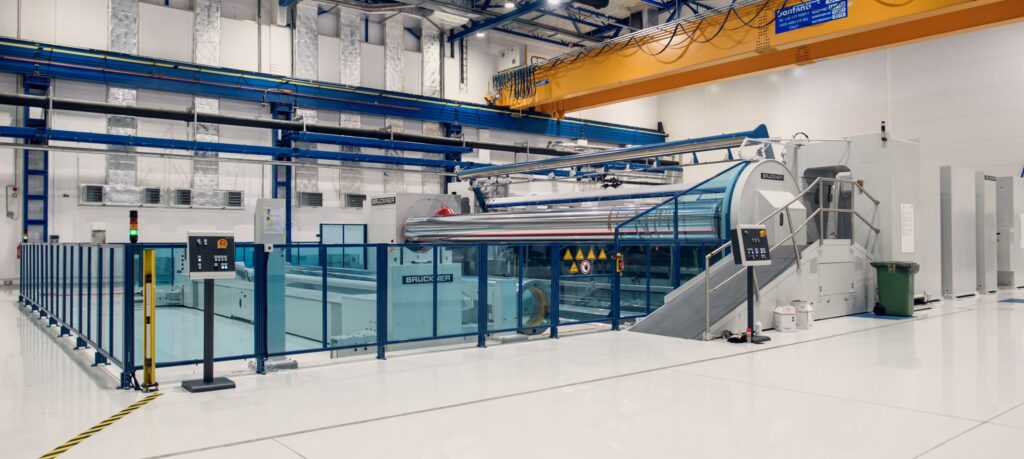
PSA – Although your Poland sites and Hungary sites are capable of serving Western Europe as well as Eastern Europe, do you see that what you are doing is appreciated more by the Eastern Europeans in the sense that these modern film plants provide materials that they did not have access to before?
Apoorvshree Chaturvedi – Yes, but I believe that sentiment is shared broadly across Europe. Everyone values strong, reliable suppliers and welcomes fresh investment. Whenever new customers invest, it creates an opportunity for us to become part of their supply chain by offering our films. When they visit our modern facilities, they’re genuinely impressed. The wider European community appreciates that we have entered the market by setting up a greenfield project with the latest machinery, rather than acquiring old plants or legacy operations.
While we constantly evaluate merger and acquisition opportunities, we haven’t found anything compelling so far, especially when it involves older assets. Given how industry margins and productivity trends are evolving, it makes far more sense to invest in the most advanced, productive machinery available. That’s why we have focused on setting up new facilities with the latest technology and know-how. This approach not only keeps us ahead of the productivity curve but also ensures we’re aligned with the needs of the local market. We have always prioritized innovation and customer centricity — and that’s reflected in the state-of-the-art plants we have built and the solutions we offer across Europe.
PSA – Do you find that in Poland, or in Hungary, your nearby customers looking to innovate help you in trying out new products and testing your R&D capabilities? What are the price constraints?
Apoorvshree Chaturvedi – Poland offers a strong ecosystem of advanced packaging companies eager to test innovative films, making it an ideal market for R&D collaborations. Hungary is evolving steadily, with good potential as local players scale.
European customers look at us not just as a supplier, but as a strategic partner offering value-based, innovative solutions. By manufacturing locally, we can respond swiftly to customers and help them maintain continuity and agility in their operations.
Another trend we’ve seen after the war in Ukraine, is that inflation has made it harder for brand owners to forecast sales, as they continuously test price points to understand consumer acceptance. This unpredictability makes it difficult for brand owners to forecast demand. Those relying on global supply chains are at a disadvantage in responding to such shifts. In contrast, when they work with us, our local manufacturing presence enables them to respond more quickly and effectively to shifting consumer trends.
PSA – Given that it takes time to rebuild consumption, is there a shift in the product mix? Is there more demand for sustainable films and laminates?
Apoorvshree Chaturvedi – The demand for sustainable films is increasing on the polyolefin side. When it comes to polyester, we see stronger interest in post-consumer recycled (PCR) content in the USA compared to Europe. While nearly every major European customer has tested PCR polyester, widescale adoption and consumption are still in the early stages.
That said, we firmly believe that PCR polyester is a highly sustainable material for the future. It can be produced within Europe using European feedstock, offering not just full PET film functionality but also long-term cost efficiency. Our polyester lines in Poland are well-positioned to support this transition, and we’re already seeing encouraging signs of demand building up for PCR polyester.
However, it’s important to note that the polyolefin market is significantly larger—nearly five times the size of the polyester segment. At our Hungary facility, we manufacture polypropylene, which serves this growing market. From both a sustainability and recyclability perspective, polyolefin films are increasingly viewed as the material of the future. This is why much of the innovation and development around sustainable films is currently focused in this area.
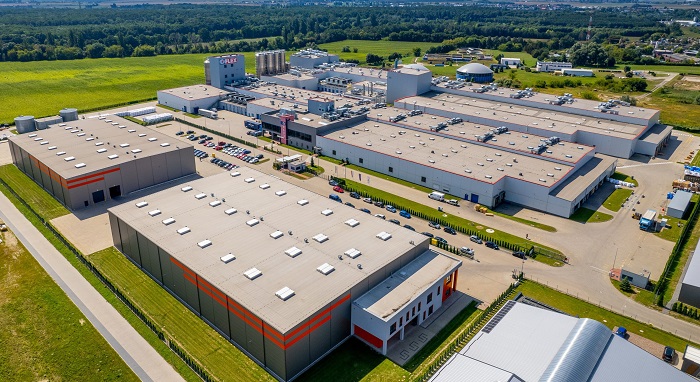
PSA – What is the progress of your plastic packaging waste recycling plant in Poland?
Apoorvshree Chaturvedi – The idea behind setting up the recycling facility next to our film plant in Poland was to create a tangible, on-ground demonstration of the recyclability of multi-layer packaging—that it can be mechanically recycled. We wanted to address the scepticism that often arises when we refer to our recycling success in India. The intent was to showcase this capability locally, and through this local recycling facility, we have effectively proved that MLP recycling is both feasible and scalable within the framework of European rules.
The recycling facility in Poland is operational and gaining traction. Initially, adoption was slow, as many stakeholders were not accustomed to integrating waste management solutions into their operations. However, the viability of the model is now being recognized. UFlex has shared samples of the recycled output with several producers across Europe. The facility currently runs on waste sourced from converters, and with enhanced engagement with the local authorities to access post-consumer waste, the system will promote a stronger circular supply chain.
PSA – How do you see the overall effects of the US tariffs, going forward?
Apoorvshree Chaturvedi – We are well-positioned to manage the impact of US tariffs due to our local manufacturing strategy. Our manufacturing facility in Kentucky, USA, helps mitigate risks related to shifting tariff structures, evolving customs regulations, and disruptions in global shipping logistics.
Since we purchase raw materials and manufacture locally, we are probably one of the best-positioned film manufacturing companies across regions.
PSA – Finally, when do you see yourself coming out of the current situation and taking the next steps? Are those two years away, three years away, or uncertain?
Apoorvshree Chaturvedi – We have kept our sales and manufacturing footprint in Europe in line with market potential. While we continuously evaluate opportunities for expansion across all the regions where we operate, there are no immediate plans for expansion in Europe.
PSA – Thank you for your very informative views and rich economic insights.




